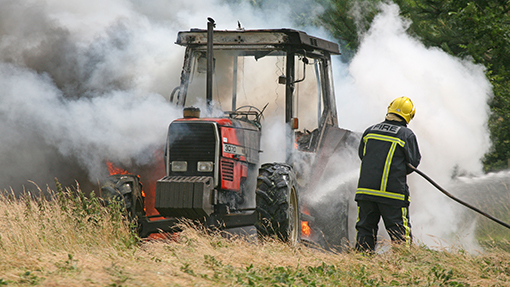Business Clinic: Employer liability insurance advice

Farmers Weekly’s Business expert Nigel Wellings gives advice on the necessity of employers’ liability insurance.
Q I don’t employ anyone but have been told I must still take out employers’ liability insurance, is this correct?
A Many farming businesses no longer employ labour directly; they may use self-employed labour, unpaid family members, labour-only contractors or agency employees.
In each of these circumstances it is still vitally important that the farming business maintains employers’ liability insurance.
 Nigel Wellings
Nigel WellingsFounder director
Farmers & Mercantile
Employers’ liability insurance is a legal requirement for any business that is using labour.
The cover provides legal liability for injury or illness caused to anyone working on the farm.
The normal indemnity limit in farming is £10m for any one claim. Together with motor insurance (another legal requirement) public and product liability insurance, it is the most vital cover on the farm.
The most common problem we see on farms today is where the farmer believes that because he uses self-employed labour, employers’ liability cover is not required.
This is categorically not the case; if that self-employed labour is using your premises, tools and machinery and is under your direction, in the eyes of the law they will be seen as an employee. Their tax status is totally irrelevant.
The same situation arises if you have a family member, friend or neighbour helping you out for a day and no payment is made to them; in the eyes of the law they will be classed as an employee and you will need to have employers’ liability insurance to cover them.
See also: Business clinic: Take care when insuring young drivers
If someone is seriously injured at work, the compensation claim and resultant legal fees can run into hundreds of thousands, and occasionally millions, so it is crucial that employers’ liability insurance is not overlooked.
Premiums for employers’ liability cover will vary between insurers but will generally start from £100/year and increase with the amount of wages you pay out.
Good health and safety management on the farm will help keep premiums down as this should be reflected in fewer accidents.
Even where you employ no direct labour it is always worth keeping the cover in place.
A recent claim we dealt with involved a self-employed builder who had quoted for and accepted a job to convert a redundant farm building into an office.
The builder would occasionally borrow a tractor and trailer from the farmer for removing debris and unloading materials on site.
One of the farm staff had also assisted the builder from time to time. Before the job was finished the builder sustained a back injury which caused him to be off work for approximately one a year.
The builder sued the farmer as his employer; insurers went to court to defend the farmer but lost the case as the judge felt an employer/employee relationship existed due to the farmer providing occasional labour, tools and machinery.
The court award to the builder was in the region of £100,000. Luckily the farmer had employers’ liability insurance that paid for the court award plus all of the legal costs involved.
The information provided in these articles does not constitute definitive professional advice and is provided for general information purposes only.
Do you have a question for the panel?
 Outline the issue in no more than 350 words and Farmers Weekly will put your question to a member of the panel. Please give as much information as possible and send your inquiry to Business Clinic, Farmers Weekly, RBI, Quadrant House, The Quadrant, Sutton, Surrey, SM2 5AS. You can also email your questions to fwbusinessclinic@rbi.co.uk or post your question as a comment below this story.
Outline the issue in no more than 350 words and Farmers Weekly will put your question to a member of the panel. Please give as much information as possible and send your inquiry to Business Clinic, Farmers Weekly, RBI, Quadrant House, The Quadrant, Sutton, Surrey, SM2 5AS. You can also email your questions to fwbusinessclinic@rbi.co.uk or post your question as a comment below this story.

